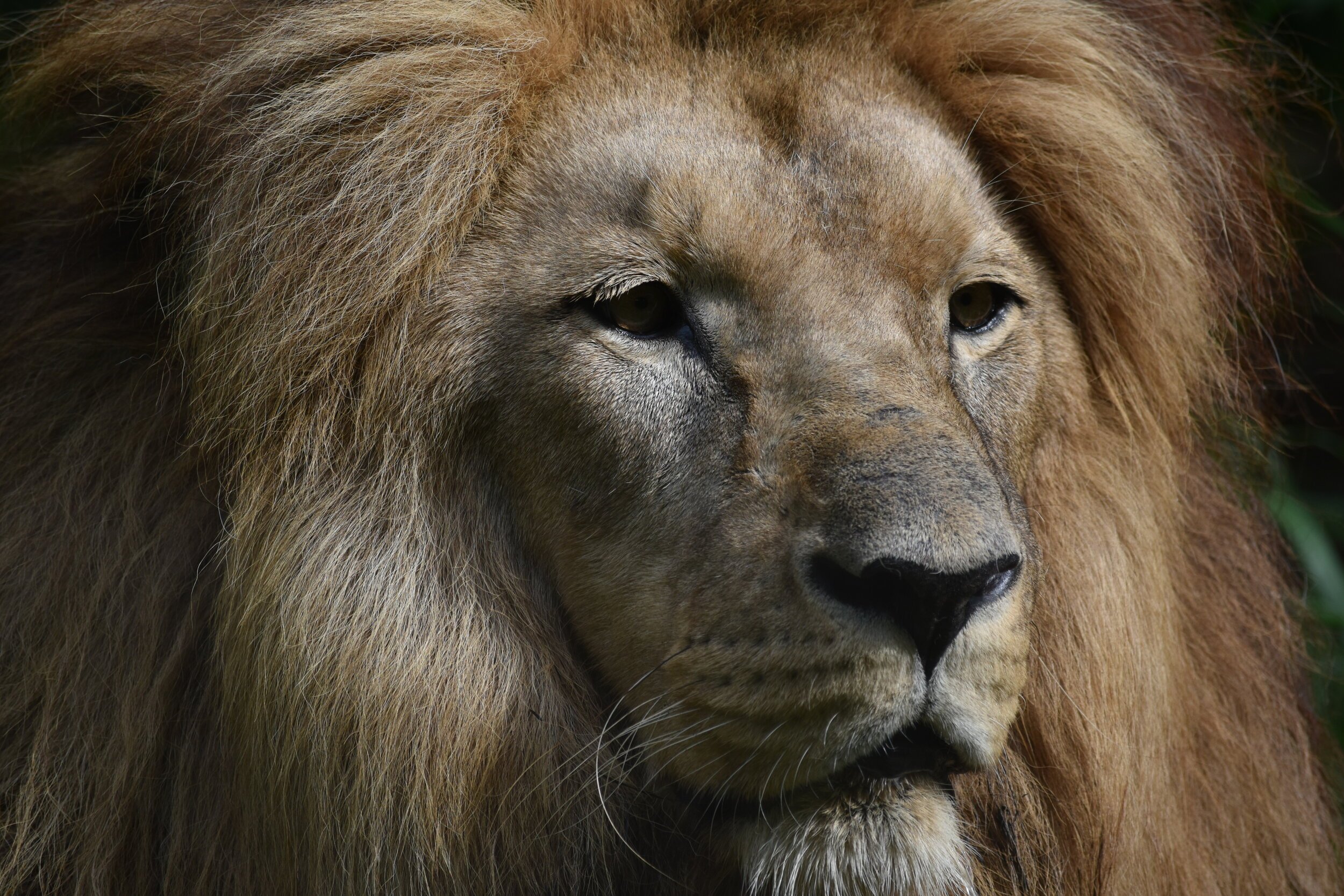For Cecil the Lion
This blog is a departure from my usual All-Weather Friend material, but I feel I must respond to the story of Cecil the lion. I grew up in a family of hunters, eating the game my father and brother killed. I don't hunt, never have or will, but I'm not opposed to it. Like thousands of people, tens of thousands, however, I am sickened by what Walter Palmer did. The images of Cecil dying are haunting. There are far worse crimes, I realize—crimes deserving of the most severe punishments we as a rational, thinking society can mete out.
I admit feeling shocked, as well, by the intensity of my own anger, which Palmer’s interview last week did nothing to bring down. Did he show real regret? Not that I heard. He tried to make the protesters who resorted to threats and vandalism feel guilty for upsetting his wife and children. He claimed not to have been hiding for the month of August but rather spending time with supportive friends and family. And he said, in his most self-condemning statement of all, that he wouldn’t have 'taken' Cecil, had he known the lion had a name and was a national treasure.
Taken? This must be trophy-hunter-speak for killed, or, in the case of Cecil, tortured to death. Used in this context, 'taken' brings to my mind the type of man who brags about 'taking' women, who keeps his own private collection of panties in the corner of his chest alongside his boxer shorts and socks. It’s conquest and pride. No apology in the word.
I’ll admit the verb means, in about its sixth definition, to steal. In that sense, it’s accurate. Besides the lion’s life, whether it had a name or not, Palmer took from me and from many others a certain peace of mind. We all have a great deal to suffer in this life, and needless outrage and anger brought on by the actions of one selfish man in Minnesota should not be making people’s blood boil.
Here’s a second question: Will Palmer pay a formal penalty for what he did? No, probably not enough of one, anyway. He will not be extradited to face the people of Zimbabwe. The US Fish and Wildlife Service can only do so much. If Palmer has had Cecil’s head mounted—and let’s hope that if he found a pro bono attorney, he failed to find anyone who would, at any price, mount that lion’s head for him—but if he did, months from now, when the fervor has died down, I can imagine him spraying Cecil’s black mane with a product to repel insects and restore luster to dull lifeless hair.
It seems he thinks that if he was acting, or thought he was acting, within the limits of the law, he deserves no reproach. If that were true, people would not be painting his garage doors and screaming at him. Protest takes effort, and people generally do not bother unless they perceive a reason for it. But I wonder if public response would shift if Palmer showed meaningful remorse.
To imagine what this might look like, I reach back to a memory from my years as a guidance counselor in a crumbling office, in a crumbling inner city school where 98 percent of the students qualified for free lunch. An eleven-year-old boy sits with me, his feet propped irreverently on my desk. The muscles of his arms and chest bulge in a very un-eleven-year-old way.
“It was funny! I was laughing!” His lips are parted in a wide grin, and he laughs to show me that it’s still funny, days later.
He and some friends had cornered a cat against a building and killed it slowly, with sticks and rocks. I listened through the whole awful story. Then I locked eyes with him, feeling, in one of my better, higher moments, not only compassion for the cat but for the boy, too. I knew him; his mother had been found on the floor of a public restroom, murdered. So I said quietly, holding his gaze, “The cat was a living creature. It felt pain the same way you feel pain. Please tell me you knew what you were doing was wrong.” After a long, unblinking moment, he broke our eye contact, and the frozen smile gave way to a look of unmasked grief. He covered his eyes with his hands and said in the voice of the child he was, “I knew it was wrong. I knew it was wrong.”
Maybe this would be a good start for Dr. Palmer, not self-aggrandizement and excuses, not regret over the inconvenience to patients whose appointments were delayed. A convincing statement that he knows what he did was wrong—and realizes, with heartfelt regret, the true reasons why. It wouldn’t restore Cecil’s life, it wouldn’t right the wrong, but it might help us move from narrowly focused anger to activism against the kind of hunting that strays like a misguided lion so far from the limits of human ethics and decency.
